Switzerland and EU mark golden anniversary
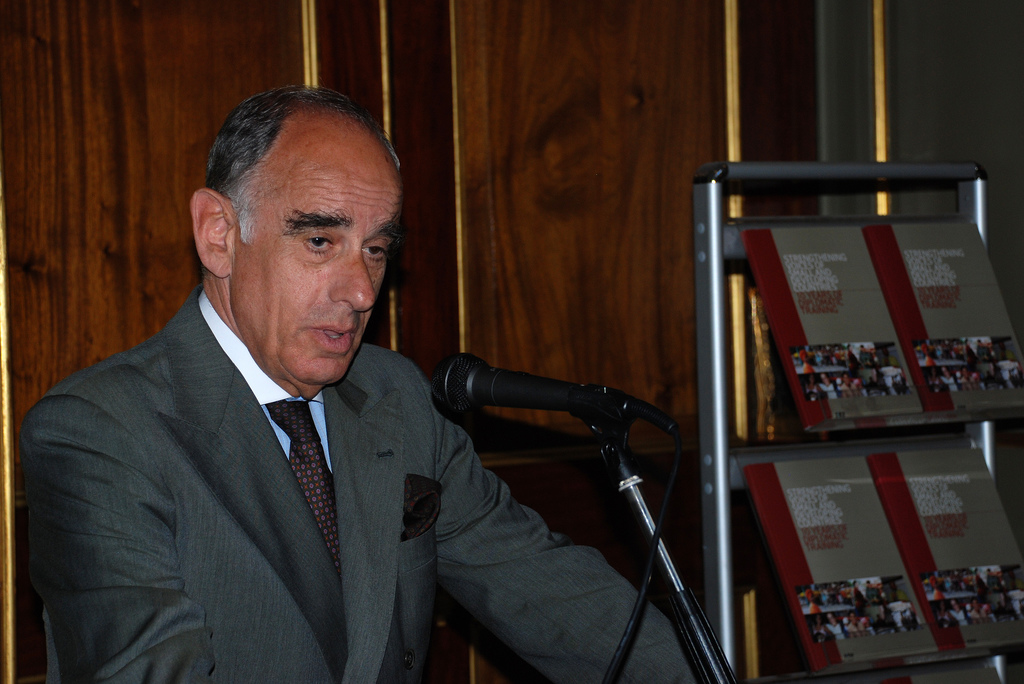
Fifty years after the founding of the Swiss mission to the European Union in Brussels, a former mission head tells swissinfo.ch about an eventful relationship.
Alexis Lautenberg, who headed the office from 1993-1999, dismisses EU accusations of Swiss cherry-picking and believes Swiss citizens are possibly better informed about the EU than those of the big member states.
His comments come as Swiss foreign minister, Micheline Calmy-Rey, attended a ceremony in Brussels marking the anniversary.
Calmy-Rey said the future challenge was at the institutional level. “There is always the issue of finding the right balance between cooperation and maintaining sovereignty.”
Until his retirement this autumn, Lautenberg was a career diplomat, serving as Swiss ambassador to Italy and to Britain. He has now moved into the private sector, working as a political and economic consultant at the Brussels office of US-based law firm Steptoe & Johnson. As such, he also lobbies for Swiss companies.
swissinfo.ch: Most Swiss seem unaware that Switzerland has a mission in Brussels. Why is that?
Alexis Lautenberg: I’m not sure that’s true. When I think back to my six years in Brussels, I get the impression that the mission is very well perceived. I believe it is still the case that the voice and position of the mission are appreciated – if not every day, certainly when important events take place.
Highly qualified Swiss journalists work in Brussels and the level of reporting is correspondingly high. I’ve worked in Germany, Italy and Britain and think that the level of information and the interest in what is happening in Brussels is perhaps even greater in Switzerland than in the big EU states.
swissinfo.ch: You came to Brussels in 1993 immediately after Swiss voters rejected joining the European Economic Area (EEA). What was it like working there then?
A.L.: Most newspapers had “Mission Impossible” headlines. There wasn’t a precedent. Switzerland itself was deeply split. There were three camps: one wanted to join the EU, one wanted to join the EEA and one wanted nothing to do with anything.
Those three camps really were at each other’s throats. From a political point of view it was very difficult – not only for us at the front. The lines also ran through government and parliament. It was a complex situation.
swissinfo.ch: How did the EU react?
A.L.: In the first six months of 1993 Switzerland put a pile of topics on the EU commission’s desk and said it would be happy to hold talks on them, but not as part of any concept and without priorities being set.
It was then up to us to tie together, out of these issues, some sort of package in which the interest of both sides could recover. In November 1993 – so less than a year after the EEA no-vote [on December 6, 1992] – we came up with a package of seven bills, which ultimately led to the first package of bilateral accords.
swissinfo.ch: In those days negotiations involved give and take. Nowadays Switzerland is accused by the EU of cherry-picking. Have negotiations become more difficult?
A.L.: At least today, as a result of the bilateral path, there is a relatively united internal approach. This is no longer an exercise in troubleshooting and is now a system. Previously it was a search for ways out – not a method.
In those days Switzerland retained the strategic goal of EU membership. I can imagine that this intention swayed the EU to show a certain level of concession towards Switzerland. Today, the question of joining the EU no longer in reality plays a role for Switzerland, with the result that we’re now operating in different surroundings.
The idea of cherry-picking is present. Personally I don’t think much of the term, since ultimately everyone stands up for their own interests to the best of their ability.
The framework conditions for the bilateral path have fundamentally changed. Everything is much more complicated. Institutional issues play a much more central role.
swissinfo.ch: Bearing in mind the bilateral path is becoming increasingly rocky, should the Swiss government consider joining the EEA or should it pause for thought?
A.L.: I don’t think it will do either. The government will take care not to stir up this hornet’s nest. We’re now quite clearly part of this bilateral paradigm, and we will remain a part of it.
Unless, that is, the EU were to raise the bar so high that we would be forced to say ‘if this is the case, we’re going to have to rewrite the general rules’. But for the time being I don’t see such a scenario.
swissinfo.ch: Nevertheless, in many issues Switzerland has no choice but to follow EU law.
A.L.: Looking at EU legislature, it’s clear that scope for negotiations will not disappear but it will continue to decrease. This is not only a question between Switzerland and the EU – it is also down to regulation becoming more and more uniform around the world. Look at how the G20 is becoming increasingly systematic.
However, the EU takes Switzerland’s special characteristics very seriously – whether it likes them or not. That is a reality and part of the whole set of measures, and the EU will make allowances. There will be no getting around that.
Fifty years ago what is now the European Union was the six-member European Economic Community (EEC) – also known as the Common Market in the English-speaking world.
The Swiss government decided to open diplomatic relations with the EEC in July 1959.
The first head of the mission was Agostino Soldati, named in September 1959.
However, he was based in Paris, and represented Switzerland not only at the EEC, but also at the Coal and Steel Community, and the European Atomic Energy Community.
The Brussels office was opened in 1960, headed by Paul Wurth.
Later heads include the ambassadors Carlo Jagmetti, Benedikt von Tscharner and Alexis Lautenberg.
As the European Union has grown – it currently has 27 members – Switzerland has increased the number of people in its mission. It currently employs 21 diplomats and experts and also has a specialist in public relations.
Switzerland is not a member of the EU but it has concluded 20 major bilateral agreements with the 27-nation bloc.
There are also about 100 secondary bilateral accords between Bern and Brussels.
Negotiations are underway for a bilateral treaty aimed at regulating access to cross-border electricity and a free trade accord on agriculture.
1992: Rejection of the European Economic Area Treaty – considered a halfway house to EU membership – by Swiss voters.
1997: Voters throw out proposal by rightwing groups to make EU membership negotiations subject to a nationwide vote.
2000: First set of bilateral treaties (trade, labour, transport) approved in nationwide vote.
2001: Proposal to launch immediate EU membership negotiations rejected in nationwide vote.
2005: Second set of bilateral treaties (customs, asylum, savings tax) win approval in nationwide vote. Extension of labour accord to ten new EU members also approved.
2006: Voters endorse Swiss payments for eastward expansion of EU.
2009: Electorate approves Swiss payments for Romania and Bulgaria.
(Adapted from German by Thomas Stephens)

In compliance with the JTI standards
More: SWI swissinfo.ch certified by the Journalism Trust Initiative
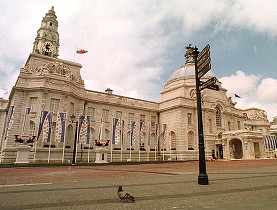
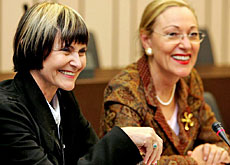
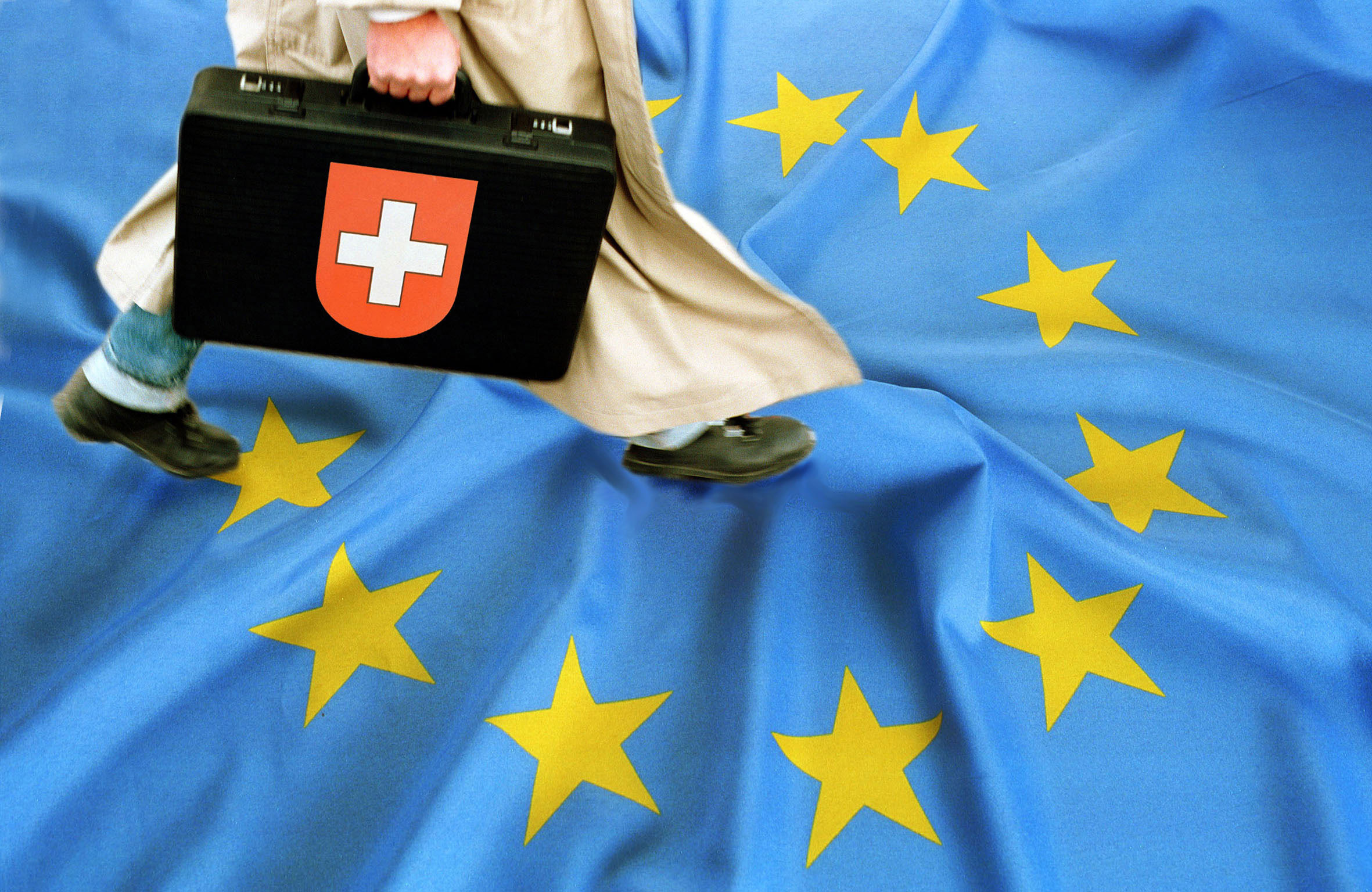
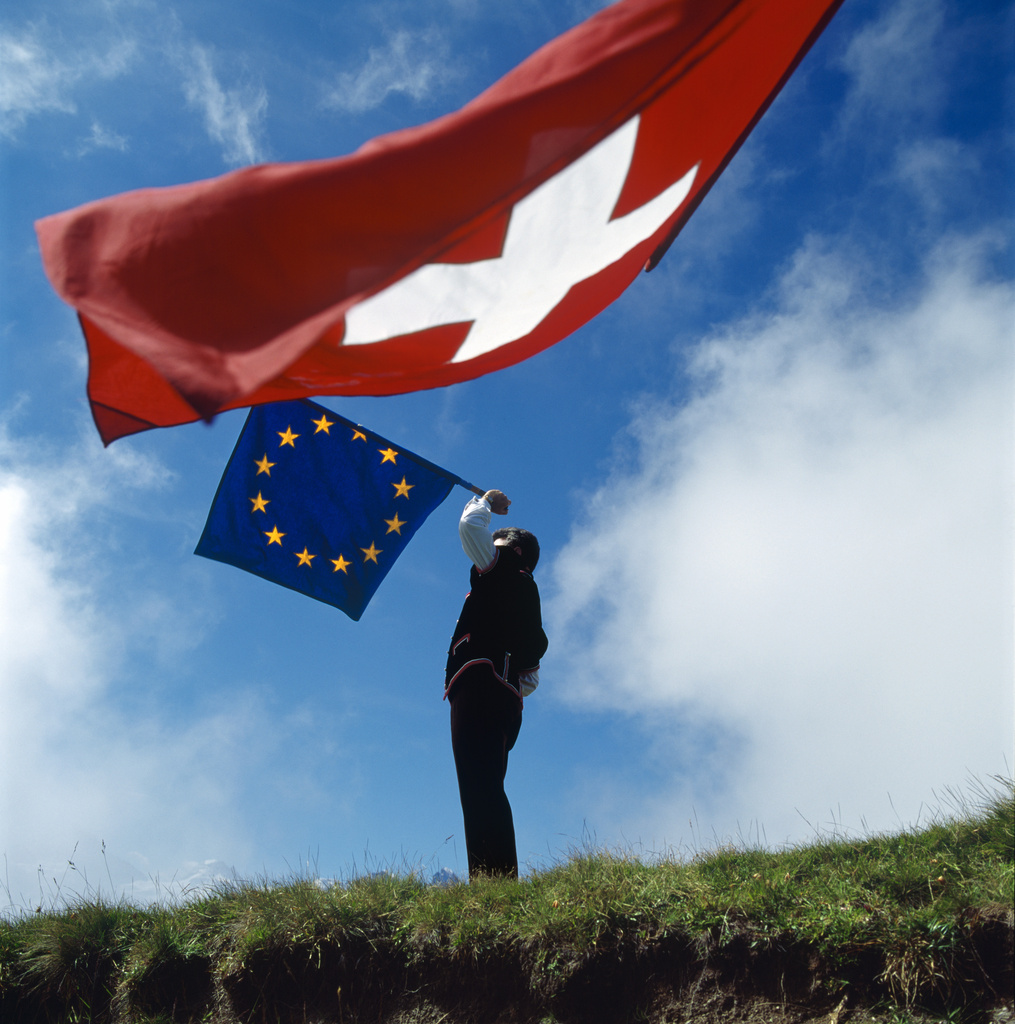
You can find an overview of ongoing debates with our journalists here. Please join us!
If you want to start a conversation about a topic raised in this article or want to report factual errors, email us at english@swissinfo.ch.